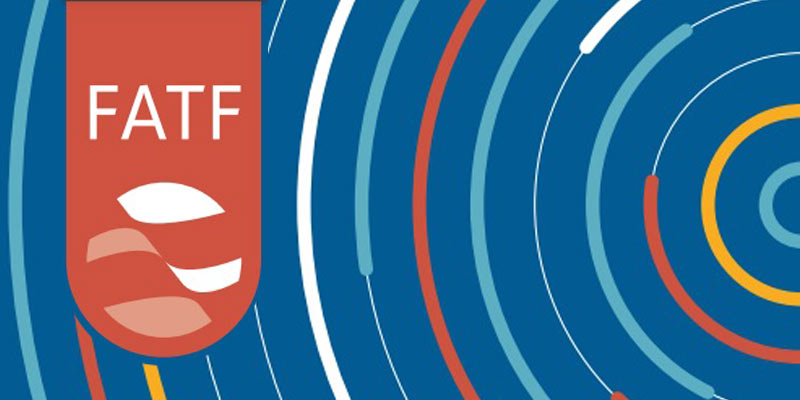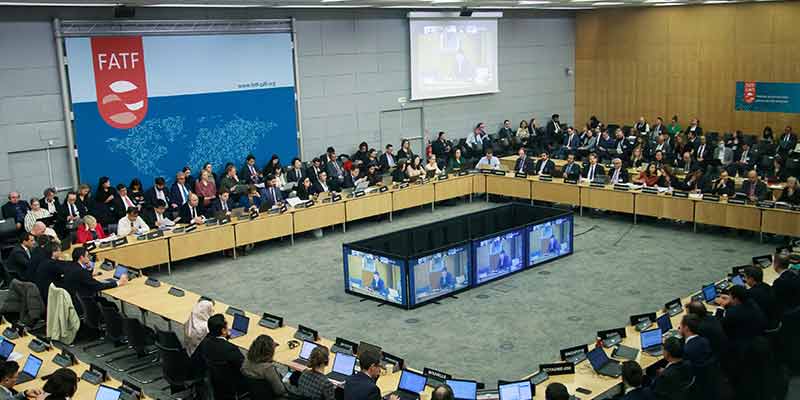- India
- Nov 17
FATF team reaches India to conduct on-site evaluation
A team of experts from the Financial Action Task Force (FATF) has reached India for on-site assessment as part of the process to conduct the country’s mutual evaluations and review effectiveness of its measures to combat money laundering and terrorist financing.
What is the FATF?
• The FATF is an inter-governmental body established in 1989 by the ministers of its member jurisdictions.
• The objectives of the FATF are to set standards and promote effective implementation of legal, regulatory and operational measures for combating money laundering, terrorist financing and other related threats to the integrity of the international financial system.
• The FATF is a policymaking body that works to generate the necessary political will to bring about national legislative and regulatory reforms in these areas.
• The FATF currently has 40 members including two regional organisations — the European Commission and Gulf Cooperation Council.
• India is a member of the FATF consultations and its Asia Pacific Group.
The FATF has two types of lists:
1) High Risk Jurisdictions Subject to a Call for Action (Black List)
2) Jurisdictions under Increased Monitoring (Grey List).
1) Black List
• High-risk jurisdictions have significant strategic deficiencies in their regimes to counter money laundering, terrorist financing, and financing of proliferation.
• This list is referred to as the ‘Black List’.
• Iran, North Korea and Myanmar are on the FATF Black List.
2) Grey List
• When the FATF places a jurisdiction under increased monitoring, it means the country has committed to swiftly resolve the identified strategic deficiencies within agreed timeframes and is subject to increased monitoring.
• Inclusion in the Grey List makes it difficult for a country to get financial aid from world bodies such as the IMF. The list makes it difficult to get investors and creditors, adversely impacts exports, output and consumption and also makes it difficult for global banks to do business with a listed country.
Mutual evaluation process
• All member countries of the FATF global network have committed to implementing the FATF recommendations.
• The mutual evaluation process involves extensive peer reviews that assess countries on their compliance with the recommendations and the strength of their systems to combat money laundering and the financing of terrorism and proliferation of weapons of mass destruction.
• The mutual evaluation review results in comprehensive reports that identify a country’s strengths and areas for improvement, as well as priority actions for the country to enhance its anti-money laundering (AML) and counterterrorist financing (CFT) measures.
• Countries receive ratings on technical compliance with each of the 40 recommendations and effectiveness in key areas categorised under 11 immediate outcomes (the expected results).
• As a peer review process, an assessment team consists of experts from member countries representing legal, financial, law enforcement and other relevant backgrounds.
• Their first step is to understand the risks of money laundering and terrorist financing that the country faces and the context of the country, taking into account a range of factors from geographic location to the size and diversity of its financial sector, its criminal activity and its exposure to international flows of illicit money.
• This is a crucial step because each country is unique in its risks and context. The team assesses a country’s Technical Compliance (TC) with the FATF recommendations to ensure that the country has laws and regulations in place to prevent criminals and terrorists from misusing the financial system, and that the country detects and punishes those that do or attempt to do so.
• The assessment team follows this analysis with an on-site visit to assess the implementation of the laws and regulations and to determine the extent to which the country’s actions achieve the outcomes expected of an effective system.
Manorama Yearbook app is now available on Google Play Store and iOS App Store


